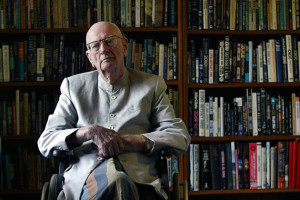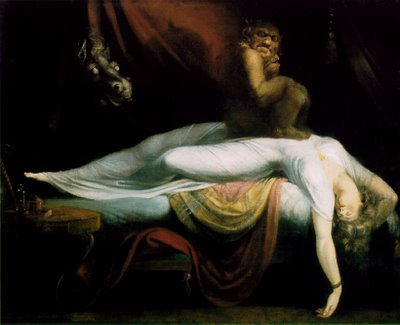The Left Hand of Darkness
I came to Ursula Le Guin in my early 30s. Voracious readers and lovers of science fiction would consider this sacrilege: she is after all, one of the giants of the genre.
But I’m very glad I didn’t discover her until I was older.
Here’s the thing: as you get older it becomes harder and harder for a novel to really change your world view. That’s because your personality, politics and character accrete experience over the decades, hardening into a shell of world-weariness.
You’ve been to your protest marches, loved and lost, been lied to by politicians, worked enough cruddy jobs, seen enough of the world to figure your place in it. Books, as such, find it harder to have that impact they once did on an open, impressionable young mind. Nothing can quite connect like Catcher in the Rye does when you’re 12, or Nineteen Eighty-Four when you’re 16, or The Stranger at 20.
Until, that is, you decide to start reading Ursula Le Guin in your 30s.
That’s because the very best books still have magic enough to lay you out with that uppercut of wisdom or insight or empathy.
 That happened for me with The Dispossessed, Le Guin’s masterpiece about an anarchist society on the resource-poor world of Anarres. It was the most powerful, most sophisticated and nuanced exploration of a political idea in science fiction since Orwell’s Nineteen Eighty-Four.
That happened for me with The Dispossessed, Le Guin’s masterpiece about an anarchist society on the resource-poor world of Anarres. It was the most powerful, most sophisticated and nuanced exploration of a political idea in science fiction since Orwell’s Nineteen Eighty-Four.
The Left Hand of Darkness nearly – but not quite – reaches those same heights.
The novel is set on Winter, a planet where the inhabitants have no gender. The Gethenians can become male or female during each mating cycle (which one is their choice). The Ekumen of the Known Worlds – a sort of interstellar United Nations – has sent Genly Ai, an ethnologist and ambassador, to study the Gethenian and to invite them to join the Ekumen.
Genly finds himself caught between two feuding (though not warring, not yet) societies: one a benign feudal kingdom steadily becoming less benign, the other a socialist-style bureaucracy with its attendant secrecies, inefficiencies and social controls.
When it comes to this novel, first and foremost, it must be said that Le Guin is a masterful storyteller. She knows how to grab the reader by the scruff of the neck and drag them into her worlds. Her consummate skill with the English language, her ability to create memorable characters and imagery, and her insights as an anthropologist helps her to craft believable alien cultures, religious practices and traditions. Right down to the folklore of those strange worlds, which she uses to powerful effect in the novel.
Le Guin uses a genderless alien world to reflect back onto our own: the extent to which we divide the world into dualities; how the male/female split influences the way we think about ourselves and our society, in contrast to the Gethenian hermaphrodite world, where value is placed on the ‘oneness’ or the union of things.
The book explores the benefits of a society that does not have passions and irrationalities of the sex drive or culturally determined divisions of gender, but as per The Dispossessed – where Le Guin rigorously investigates the negatives as well as the positives of an anarchist society – the book does not shy away from describing how sexlessness can be exploited. In Left Hand of Darkness the ‘fertility’ cycle of the Gethenians – they come on heat, or kemmer a couple of days per month – can be ruthlessly manipulated by the powerful. Once kemmer is taken away through drugs, the Gethenians devolve into ‘bovine docility’.
The hermaphrodite society is one without war, but also one without spark or passion. It is a society of intrigues and double dealing and honour lost and gained. Of religions that look for unproof, rather than faith; and cults that reject easy answers (or any answers) and through this rejection find wisdom.
It is a fully-realised alien world, but also one beset by something universal to the human experience. As Genly notes during a meeting with someone in power: “He was a hard shrewd jovial politician, whose acts of kindness served his interest and whose interest was himself. His type is panhuman. I had met him on earth, and on Hain, and on Ollul. I expect to meet him in hell.”
Qualms with the novel are minor. Genly has trained his whole life to be an anthropologist and ambassador, he has studied dozens of different worlds and hundreds of different forms of civilisation, yet at times he seems remarkably culturally obtuse. He repeatedly misses clues and signs as to the Gethenians’ intentions towards him, which to the reader are downright obvious.
But his obliviousness is a plot point and as such necessary to the novel.
The only part where the novel really shows its age (it was written in 1969) is when Genly is asked: “what are women like?” His answer – a variation of ‘well women are mysterious and complicated and no-one understands them’ – is simply not credible for someone from an advanced civilisation to make.
But these are merely quibbles.
Written over 45 years ago, The Left Hand of Darkness stands the test of time. It is thoughtful and though-provoking; it is intelligent, top-notch storytelling. If you’re a fan of smart science fiction, or of reading novels that provide a prism through which to see the world a different way, The Left Hand of Darkness is a must read.
The City and the Stars

I was going to call this book the ‘The City and the Snooze’ because that would have been HILARIOUS. But seriously, this is one boring book. Where Left Hand of Darkness stands the test of time, City and the Stars is a testament to how far science fiction has come since the 1950s. The writing is turgid, the characters one-dimensional, the pace tedious and the plotting is probably there somewhere.
Perhaps the most interesting aspect of the novel is not the novel itself, but how it was written: on a ship from London to Sydney between September 1954 and March 1955. I may be falling prey to nostalgia, but the thought of six months’ peace, disconnected, to simply write. Wow.

That just doesn’t happen anymore. I doubt there are any writers, anywhere who take half a year to write or think or feel or simply breathe, free of smart-things and the internet and pictures of their dinner on Instagram. What Clarke had while writing is something lost in his imagined future and in our present: solitude and time.
Anyway, let’s discuss The City and the Stars, the intensely boring story of Alvin, an immortal resident of the city Diaspar. Alvin never has any meaningful human interaction, no real passions other than a generalised curiosity, no internal intellectual life worth mentioning and nothing much of interest to say.
Alvin should be called Ambien. Then I could write, “City and the Snooze, featuring Ambien” and that would also be hilarious AMMIRITE?!
Apologies. I did it again. This book has that sort of effect on the reader – drives them to bad jokes and narcolepsy.
The City and the Stars has lots of description: miles of it. And not the self-indulgent yet brilliant, inventive description of China Mieville in Perdido Street Station, but rather the tedious, drawn out description of a man compelled you to tell you about every shiny bolt, every shimmering tower, every gleaming surface of this soulless City called Diaspar.
The one positive of the book is that it does have an idea that is ahead of its time. At the start of the novel it becomes clear that human beings of the far, far future (a million years or something) are being isolated from human contact by advanced communication technology and intricate virtual reality programs. Many spend all their time in their homes, having no real reason to go out for human contact. This is quite visionary, and as the book began I had high hopes for where this idea would be taken.
The idea is taken precisely nowhere. Nor is the reader. Rather, we join Alvin on his ‘adventure’ (I say in quotations marks, eyes rolling, while giving the book the finger). Sure, Ambien wants to leave the city he was born into, which in-principle represents something that motivates the main character. But the authorities of the City are so anodyne and the environment so safe his quest is one you simply can’t invest in. You assume he’ll be successful, but if he isn’t he’ll be an immortal that lives forever in luxury. Oh gee yeah I’m rooting for this guy – the stakes are just so high.
If you’re looking for an entry point into the works of Clarke, I’d look elsewhere.
